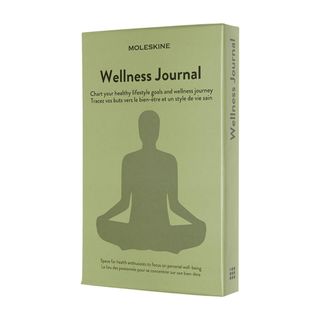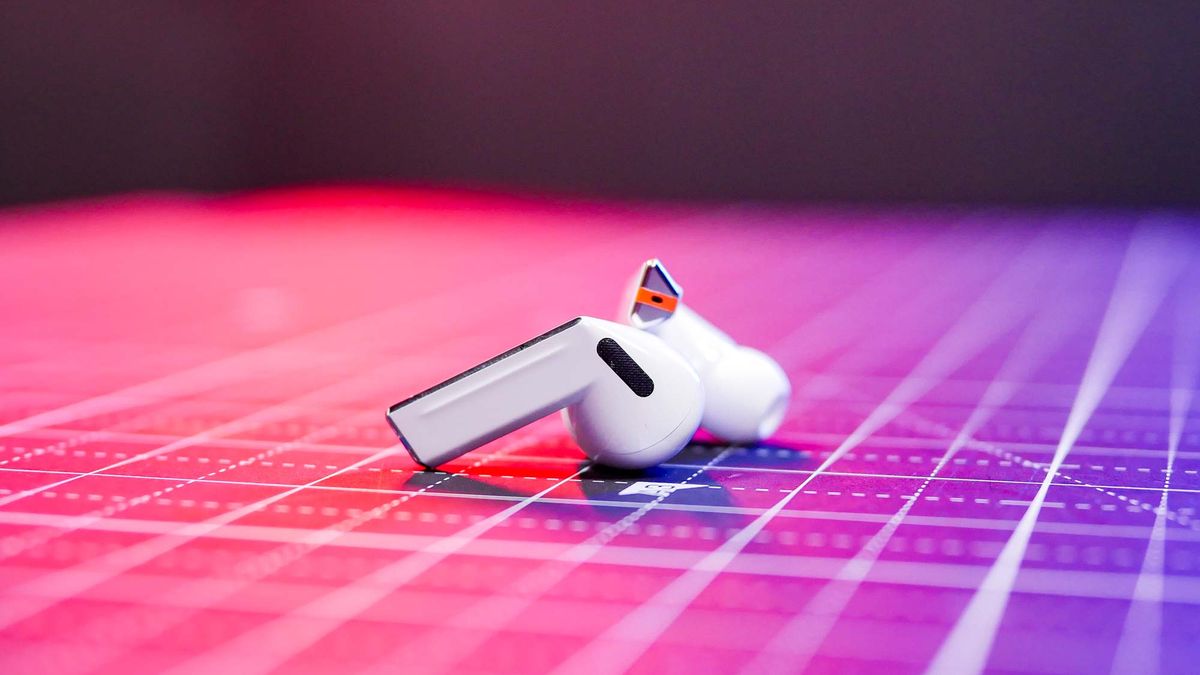Committing to Dry January this year? The good news is that you’re already well past the halfway mark, which is a huge achievement in itself. While you should be proud of reaching this point, it’s okay if you’re finding it difficult to keep swerving alcohol and stick to your goal - which is where the many Dry January benefits come in to help keep you motivated and can serve as morale boosters for the remainder of the month.
Dry January, an alcohol-free campaign started by Alcohol Change, is a great way to re-evaluate your relationship with alcohol. Experts and statistics confirm that going alcohol-free will boost not only your physical but mental health, too. And, while you may think that the many pros of ditching alcohol for a month are obvious, there are also loads of surprising Dry January perks that you may not be aware of.
“Letting go of alcohol doesn’t just subtract something from your life - it adds so much,” says Melanie Murphy Richter, a registered dietician at L-Nutra. “Your body and mind will thank you in ways that you might not even expect.”
Eager to learn more and read up on the perhaps under-the-radar benefits of swapping your wine for water? Below, we’ve called on health experts, including registered GPs, psychologists, dieticians and nutritionists, to discuss how a month without alcohol can impact both mind and body. So, if you’re struggling to make it to the 31st without a drop, keep scrolling to read up on seven health benefits of going alcohol-free that'll encourage you to keep going. Sober curious? Don't miss our guides to dry January, sober celebrities, and how one MC UK staffer's relationship with drinking changed when she gave up alcohol for 21 days, here.
There are loads of Dry January benefits - but these are the most surprising
Is a month without alcohol enough to make a difference?
Sceptical about whether going 31 days without alcohol is enough to make a substantial change? There are plenty of studies to prove that it is.
Case in point: one 2019 study found that a month-long break from alcohol boosts long-term health, with those who took part in Dry January enjoying higher energy levels and healthier body weight.
Meanwhile, another study found that moderate-heavy drinkers saw various health benefits after spending four weeks alcohol-free, including improved blood pressure and liver function.
@docamen ♬ Stories 2 - Danilo StankovicWhat happens after a week of going alcohol-free?
Even going just seven days without alcohol has been shown to have its benefits. According to Dr Nayan Patel, pharmacist and founder of Auro Wellness, any withdrawal symptoms you see will subside after just one week as your body recovers.“The most difficult day is anywhere from day three to seven after quitting,” explains Patel. “After that, you’ll start to see the immediate benefits of better sleep, improved mood, and enhanced energy levels.”
There’s even evidence to suggest that completing Dry January can alter your relationship with alcohol in the long run. This study, for example, found that, by participating in Dry January, you’re more likely to drink less over the next six months. “The beauty of quitting alcohol is how quickly your body starts to recover,” says Sapna Peruvemba, a registered dietician and founder of Health by Sapna. “Within weeks, you’ll notice brighter skin, better energy levels, and more stable weight. And the longer you continue, the more benefits you’ll experience.”
@knaakwell ♬ Lofi - Tollan Kim7 surprising benefits of Dry January you need to know about
1. It promises to boost your metabolism and reduce cravings
Peruvemba tells us that swerving alcohol gives the body a chance to reset its systems for regulating appetite, which reduces cravings for sugary snacks and encourages a balanced diet. “Alcohol interferes with key hormones like serotonin, which influences appetite, and leptin, which regulates satiety,” says the dietician."The result? Cravings for hyper-palatable, calorie-dense foods and a tendency to overeat.”
Alcohol also has a high calorie count, which may take you over your recommended daily calorie intake. “Alcoholic drinks are calorie-dense, and a bottle of wine has between a quarter and a third of the recommended daily calories for a woman,” explains Sam Rodgers, lead GP at Neko Health. “Cutting out alcohol for a month helps your metabolism to get back on track by getting rid of the calorie excess, and improving the quality of your diet."
2. It'll lower blood pressure
According to Rodgers, most of us are completely unaware of our blood pressure until it’s measured as part of a health check. However, monitoring blood pressure is important for heart health. “One of the hidden benefits of not drinking alcohol is a reduction in your blood pressure, which can help to decrease the likelihood of having a heart attack or stroke in future,” says Rodgers.
Gabby Zeagler, a clinical dietician at Nourish, tells us that alcohol raises blood pressure as it damages our blood vessels. But a four-week break from drinking may help to repair that damage.”Cutting back or stopping altogether can give your cardiovascular system a chance to recover and give your heart a break,” she explains.
3. It'll boost your immunity from illness
As blood pressure lowers, your immune system strengthens and reduces the risk of illness - a major plus during cold and flu season.
As Murphy-Richter explains, alcohol can weaken your gut and immune system, leading to harmful substances like toxins and bacteria slipping into your bloodstream. “This triggers inflammation and overworks the immune system, leaving it less effective at defending against actual threats,” she says. “When you quit alcohol, your gut lining can begin to repair, helping to restore its natural barrier function. With 70% of your immune system living in your microbiome, a healthier gut supports a more balanced immune response.”
@drchizikeji ♬ original sound - Dr. Chisom Ikeji4. It'll promote sharper focus and motivation
While Dry January may pack a lot of benefits for your physical health, it’s easy to forget the positive effects it can have on your mind, including enhanced mental clarity. “Without alcohol’s effects on the brain, concentration, memory, and overall cognitive function improve, helping you feel sharper and more productive,” Dr Sophie Mort, clinical psychologist and mental health expert at Headspace.
Dry January may also improve resilience and help you feel more motivated to achieve your fitness goals, good news if you’re planning on more home workouts this year. “When you maintain an alcohol-free lifestyle, you may notice having more stamina and focus throughout your day because your body isn't working overtime to process alcohol," explains Catherine Gervacio, a registered dietitian and nutrition consultant at WowMD.
5. It'll improve your hydration and reduce bloating
Notice less bloating when taking a break from alcohol? “Alcohol is a diuretic and causes water retention and puffiness,” explains Gervacio. “This can be noticed in your face, abdomen, and extremities, over time. By cutting down on your alcohol intake, your body recalibrates and inflammation decreases, reducing bloating.”
“Alcohol’s main function is to dehydrate us and is what causes such bad hangovers,” adds Zeagler. “It causes our body to lose fluids and essential electrolytes, that’s why sports drinks are everyone’s best friend the morning after. Giving up alcohol allows your body to retain moisture and nutrients.”
According to GP Rodgers, this increased hydration can also translate to healthier skin. “Over dry January, your skin should start to regain a healthy glow and feel softer as its hydration levels improve and inflammation levels drop,” he explains. “Alcohol robs your skin of moisture, which makes it look dry and dull. It also relaxes the blood vessels in the skin, which can make your skin look red and flushed. Dry January lets your skin regain healthy levels of hydration and reduce inflammation.”
6. It'll improve your sleep quality and energy levels
Countless studies have shown that alcohol can cause havoc on your sleep, so the added benefit of Dry January is better sleep and feeling more energetic. “You may feel more energized because alcohol can disrupt your sleep cycle, especially REM sleep,”says Gervacio. “This leaves you feeling groggy and sluggish the next day. So if you quit, your sleep quality dramatically improves and you'll wake up feeling more refreshed and energized.
However, if you feel as though your sleep quality hasn’t improved (or even declined) since the start of January, then don’t be discouraged as Rodgers explains this is completely natural and will get better. “Sleep can get a little worse in the first week or two of Dry January, particularly if you have been relying on it to help you drop off,” he explains. “By the third and fourth weeks of the month you should notice that your sleep quality has improved, and that you are waking up feeling more refreshed.”
7. It promises to boost your mood
As energy is boosted, so is your mood. Research has shown that sobriety can improve satisfaction with life, and there’s a good reason for this. “Alcohol is a depressant that can exacerbate anxiety and low mood,” explains psychologist Mort. “A month of sobriety often leads to increased happiness, reduced anxiety, and a better ability to manage emotions.”
Shop the MC-approved Dry January Kit:


Moleskine Wellness Passion Journal
Keep track of all the Dry January benefits you've noticed to motivate yourself to keep going with one of the best wellness journals.

A key Dry January benefit is high energy, so put this boost to good use and try some home workouts with this medium-impact sports bra.
How are the simplest ways to make it through Dry January?
Looking for tips and tricks for making it through the month with no alcohol? While it shouldn't be too much of a challenge, some social situations can be testing. Let the below expert tips, help.
Karen Tyrell, CEO of alcohol charity Drinkaware, advises writing down all the positives that have happened to you since cutting out alcohol. “For example, people are often quite surprised at how much money they save by not purchasing alcohol,” she says. “One way that people can keep their motivation up is by keeping a bit of a note of how much they aren't spending on alcohol.”
Next - plan ahead: “If your normal pattern of drinking in the week is on certain days, such as Friday and Saturday, that would be a time when it will feel perhaps more challenging,” Tyrell says. Think about what else you could be doing on those days. "Could you be going to the cinema? Perhaps you are going to the pub, but you can be having a zero beer instead, and still be socializing and managing it in that way.”
Another top tip: keep revisiting your reasons for ditching alcohol. “Is it to improve your health, sleep better, save money, or set an example for loved ones? Write this reason down and keep it visible—on your phone, mirror, or journal,” advises mental health expert Mort. “Revisiting your "why" during difficult moments can bolster your motivation and remind you of the bigger picture.”
Last but by no means least, seek Accountability: “Share your goals with a trusted friend or join a supportive group, such as an online sobriety community, to stay motivated,” suggests Mort.” Knowing someone is rooting for you can make a big difference.”




















 English (US) ·
English (US) ·